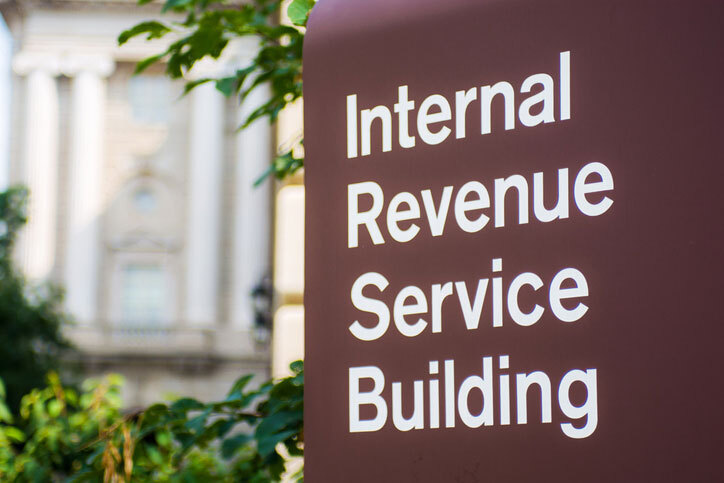IRS Audit: The Ultimate Guide (All Your Important Questions Answered)
If there’s one thing no one wants to experience, it’s an IRS audit. The tax system in the U.S. is infamously complicated and with an additional 87,000 IRS agents due to join the ranks, things aren’t looking so good for taxpayers.
In case you haven’t heard, $80 billion of the Inflation Reduction Act will be allocated to the IRS. Though not explicitly stated, there’s a heavy implication for more audits than ever before.
What Is An IRS Audit? How Will I Be Notified?
An IRS audit is the verification process of an individual’s or company’s financial accounts. For this article, TaxRise will cover this topic from the perspective of the individual. In other words, the IRS will review all your financial statements to make sure everything is accurate.
The IRS always makes initial contact via a letter delivered to your address. The IRS will never call or demand your personal information over the phone or on social media.
Why Was I Selected For An Audit?
Audits don’t necessarily mean that there’s an error in your tax return. The IRS randomly selects returns according to a statistical algorithm, and your return could have been the one to be chosen.
Of course, the second reason why your tax return was selected for an audit is that the IRS detected anomalies and red flags. When someone hears the term “tax audit”, this is most likely what their mind jumps to.
Regardless of why you were selected in an audit, TaxRise is experienced with representing audited taxpayers. We help negotiate on your behalf.
What Are My Rights During A Tax Audit?
When the IRS is legally able to dig through your financial records, it can seem as if you don’t have any right to refuse. Don’t assume this — you still have rights as an American citizen.
The Taxpayer Bill of Rights is a short document that details what the IRS can and can’t do. Make sure to skim this so that you’re aware of what you’re obligated and not obligated to do.
How Far Back Can The IRS Audit You?
Generally, the IRS can audit a tax return back for three years. If there’s a mistake found, the time the IRS can audit is extended.
It’s rare for the IRS to go back more than 6 years. The general statute of limitations for tax returns is 3 years. But, if your tax return violates tax return guidelines, then the statute doesn’t apply. You’ll be fair game to the IRS.
What Records Do I Need To Provide? Can I Request More Time To Respond?
The records you’ll need to supply will depend on the reason you were audited. The IRS will mail a list of the documents they’d like to see.
Again, remember that the IRS will not ask for sensitive information over the phone. All dealings will be done via mail or face-to-face with a representative.
How Long Does An Audit Take?
IRS audits usually take less than 6 months to complete. Of course, this depends on many factors.
Some factors that impact the process will be the complexity of the audit, thoroughness of record keeping, scheduling availability, and conclusion of audit findings.
In general, the more cooperative you are, the faster the audit will be completed.
What Happens If I Disagree With The Audit Findings?
Once the IRS audit is complete, there are 3 possible conclusions:
- No change: records are up to date and no changes are needed.
- Agreement: IRS proposed changes and you agree with the changes.
- Disagreement: IRS proposed changes and you disagree with the changes.
If there’s no change or both you and the IRS agree on the outcome, then the audit process is complete. You’ll need to sign a report.
However, if you disagree with the findings, then you have the right to file an appeal or look for mediation.
IRS Audit Penalties: What To Do With My Tax Debt?
If you were audited and both you and the IRS agreed that you owe tax debt, then it can have a disastrous effect on your finances.
Fortunately, the IRS offers the Fresh Start Program to help taxpayers in that situation get back on track. The Fresh Start Program isn’t an actual program but rather a collection of programs.
If you qualify for assistance, you can apply for a specific program. Hiring a professional tax relief company (like TaxRise) is a sure way to go, as we can help you get the best possible resolution. We’re used to dealing with the IRS and understand the legal jargon, so you’ll avoid the stress and possible additional complications.
The Takeaway
If you don’t know where you stand financially, check out TaxRise’s free tax consultation. From this quick call, you’ll be able to determine if you qualify for our services and which tax relief program will work best for your unique situation.
We help represent taxpayers who are audited by the IRS. We help advocate for the best relief outcome possible.
TaxRise has helped thousands of taxpayers just like you resolve their tax issues and erase their tax liability.




